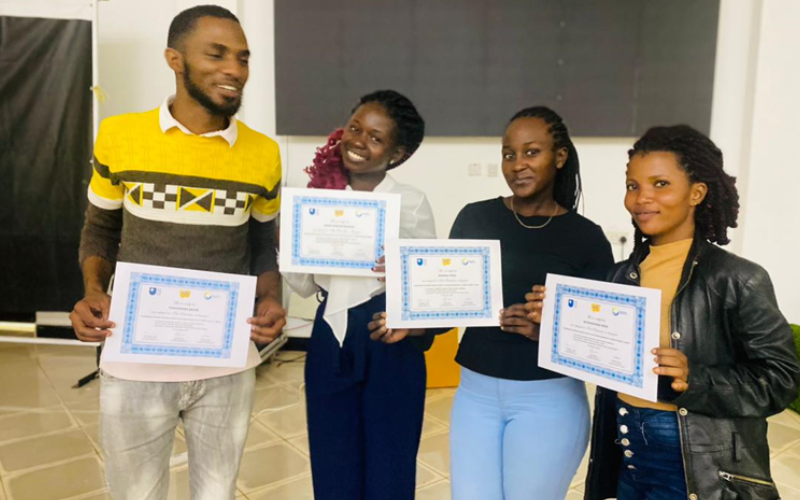You are here
- Home
- New report highlights ways to improve sexuality education for refugee youth in Western Uganda
New report highlights ways to improve sexuality education for refugee youth in Western Uganda

Refugee youth in Western Uganda are at a high risk of poor sexual and reproductive health, with little access to formal sexuality education. A recent project conducted by peer researchers in Western Uganda alongside staff from Ugandan NGOs and three Centre for the Study of Global Development (CSGD) colleagues - Dr Rebecca Jones, Dr Koula Charitonos and Dr Joyceline Alla-Mensah aimed to improve the design and delivery of sexuality education for young refugees.
The research found that poverty, lack of education, and negative attitudes towards young refugees were the most significant barriers to accessing sexual and reproductive rights.
Current experiences of sexuality education were found to be limited and disconnected from the realities of young refugees' lives. Information about sexual and reproductive health and rights (SRHR) is highly contested, and young refugees are engaging with diverse views and approaches.
Menstrual hygiene products are in short supply and need to be culturally acceptable and appropriate to low-resource settings. Contraception is not always acceptable, and Long-Acting Reversible Contraception (LARC) was often associated with excessive bleeding and subsequent infertility. Sexual and gender-based violence is common, with difficulties in reporting and accessing justice.
The project's main recommendations include involving young refugees in planning and delivering sexuality education, understanding the broader context and information ecosystem in which sexuality education occurs by speaking to young refugees and drawing on existing research or undertaking new research.
Their research also recommends seeking support from parents, family and community leaders and offering holistic sexuality education that makes explicit links between key concepts and local issues and challenges, such as poverty and refugee status. It also recognises the significance of trust and lack of trust in sexuality education, especially when messages or educators are seen to come from outside sources.
The project recommends recognising the legacies of colonialism in sexuality education and designing curricula that are appropriate to specific contexts and situations. The research suggests that, where possible, sexuality education should be integrated into vocational skills training and other livelihood initiatives. It also advises that those delivering sexuality education are fully trained and supported, recognising the challenging nature of the work.
Overall, the research highlights the need for contextually sensitive sexuality education to ensure that young refugees have access to the resources they need to make informed decisions about their sexual and reproductive health. Read more about the sexual health experiences of young refugees in Western Uganda and policy recommendations in the project’s report.
The image shows some of the peer researchers with their certificates of achievement.
Are you already an OU student?
Request your prospectus
Explore our qualifications and courses by requesting one of our prospectuses today.
Request prospectus